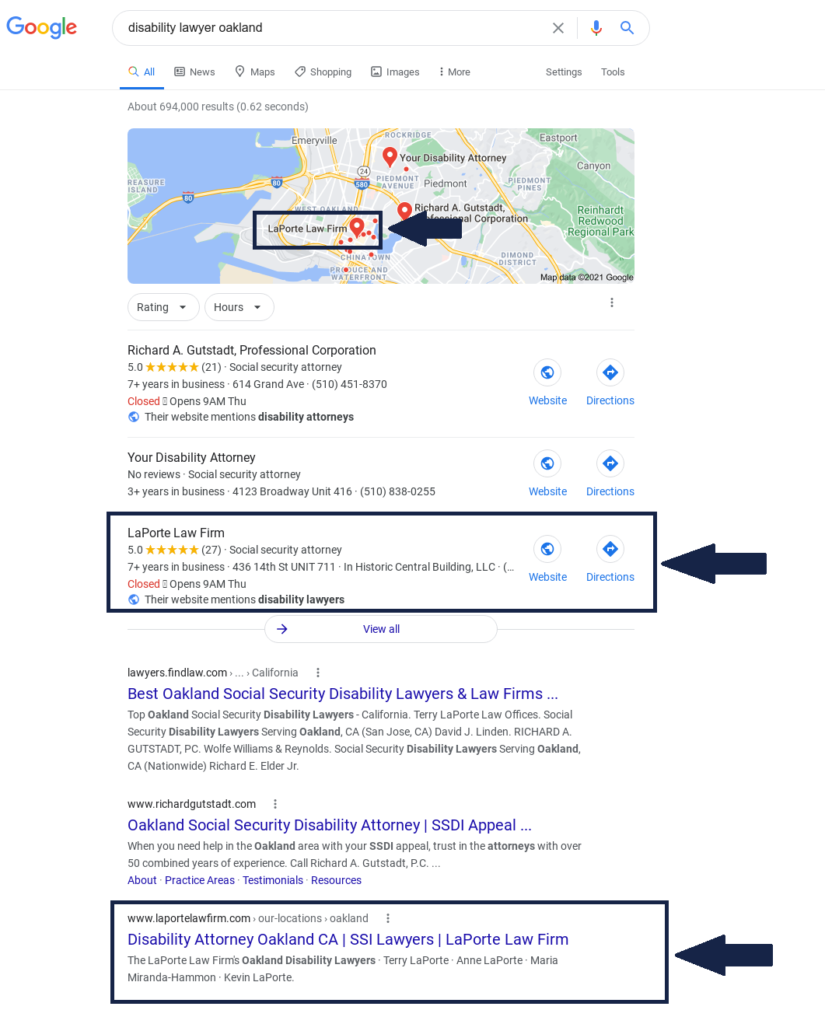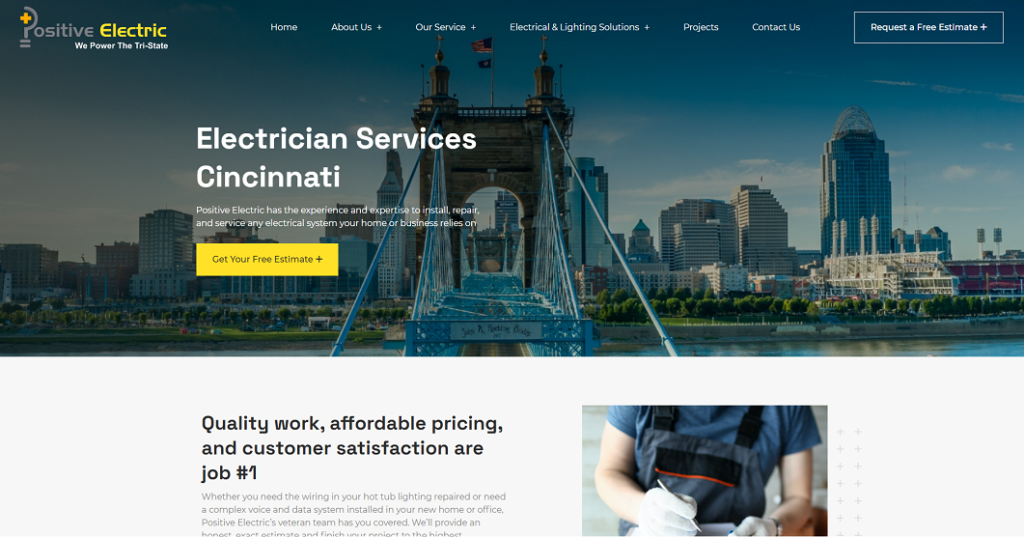Does your company have a brick-and-mortar location? Are local customers your business’s bread and butter?
If so, local SEO is an essential strategy for ensuring people can find your business quickly and easily. It generates leads, boosts your reputation in the community, and increases the chances that someone sees your website after searching “[your industry/product/service] near me.”
Adding a page to your site for each location you serve is one of the first things you should do improve local SEO performance. Here’s how they work:
What is a location page?
A location page showcases one store, office, or service area. If you have multiple offices or stores, you’d create a location page for each.
For example, imagine that a restaurant has several branches within a city. Creating one page for each location would help people find the nearest or most convenient branch and showcase any details that are unique to that spot.
Beyond the benefits of increased visibility in Google Maps, location pages may also show up in regular search results. Take one of our clients, Laporte Law Firm, for instance. When someone in Oakland searches for “disability lawyer Oakland” (or “disability lawyer near me”), their name shows up in three different places. And it’s the same case for their other location pages as well!

Location-specific pages will boost local SEO for your business locations
How do you set up location pages?
A location page is essentially the same as any another page on your website. Some businesses link to them in the main navigation bar along the top of the screen while other businesses don’t show the link anywhere on their site (opting instead to only share the link with targeted audiences). It all depends on how you want people to find your location pages.
In fact, you need to decide how people will interact with your location pages before you even create them. Tools like Google Analytics and Ahrefs will help you determine things like keywords, page length, title tags, and other important variables.
The majority of searchers who are looking for local listings use mobile devices. Ensuring your pages are optimized for mobile screens should be priority number one because it improves users’ experiences and boosts your reputation with Google.
Bottom line: If your location page doesn’t look good on mobile screens, Google is unlikely to show it in mobile search results.
Lastly…your location pages need great content! Obviously, for the sake of your site visitors, but also because simply copying content from other location pages could be marked as “duplicate content” and receive less recognition from Google.
What should be included in location page content?
Each page should have up-to-date information on the location name, address, phone number and hours of business. You might also include staff email addresses or a contact form. And as with any web content, always tell visitors what you want them to do next (e.g. “call today”, “schedule an appointment”, “request a quote”, etc.)

If contact details and a call to action are content priority number one, product or service information specific to that location should be priority number two. Here are some examples:
- Location-specific menus for restaurants. Or, if you offer professional services, consider showcasing whatever you sell that is most popular at that location.
- On-site events such as a seminar or community gathering.
- Recommendations for the area (e.g. “pop into Corner Café and get a coffee on us while you wait for your appointment.”)
- Maps of the location’s neighborhood.
- Biographies of staff specific to that location.
- Pictures and videos of your office or shop (and don’t forget Tip #19 from our Local SEO Guide).
Finally, if you’re able to get other reputable websites to link to your location pages Google will reward you handsomely in the rankings. “Good quality” is the key, meaning the sites should be genuine and relevant to your industry. You might get penalized by Google if the links seem “spammy.”
Final thoughts
Location pages are essential if you have more than one location from which you do business (if you have just one location, then your website IS your location-specific page).
Pages that are dedicated to just one location give you the opportunity to add precise SEO efforts based solely on that location. You can do a better job of attracting local clientele who search for your services.
If you need location pages or any other tips mentioned in this article, request a free local SEO audit! Our team would love to chat and see what we can do to help optimize your local business’ online presence.


